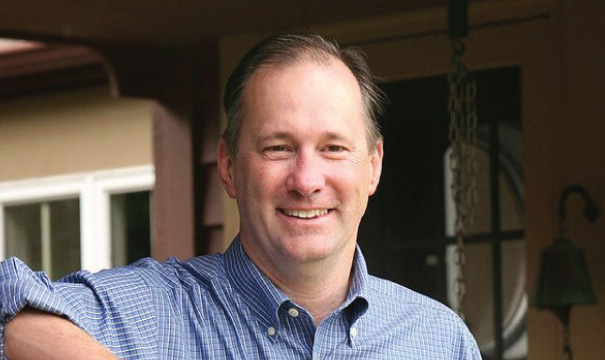When I was nineteen I moved to Plainfield and rented an apartment a few blocks from Plainfield Friends Meeting where I began to attend meeting. Jim Wilson was the pastor. The Catholic priests I had known as a child tended to be distant, but Jim was gregarious, a splash of color, like a parrot among crows, which I liked. He also didn’t ask me to confess my sins to him, which at that period in my life would have taken a good portion of his day, so that was a point in his favor, too.
I had been there a few months when I was invited by several of the Quakers to stay afterwards for a meal and the monthly meeting for business. That was a foreign idea to me, the notion of authority resting with the people, not with the church hierarchy—the priests and bishops and Pope. I was curious, and hungry, so accepted their invitation. We went down to the basement, ate, then went upstairs to the library. The clerk of the meeting sat in front and said a prayer and we sat quietly for a time, then the clerk brought up the first item of business. Someone had moved, creating a vacancy in the meeting’s leadership, so the clerk asked if anyone had any suggestions for a replacement. I remember thinking the position was of some importance.
We sat quietly, thinking, looking around to see if anyone was absent we could nominate, someone not there to defend themselves, when someone suggested a person for the vacancy. The person recommended was rough around the edges, and could be intimidating if she didn’t get her way. I sensed that many of the Quakers in the room were uncomfortable entrusting this woman with that position. It was also obvious they were too kind to say anything, so no one spoke. We just sat there very quietly for several minutes, until Carolyn Kellum, a wise and weighty Friend, said, “That name would not have occurred to me.”
“That’s a nice way of putting it,” I thought to myself. So much better than saying, “What in God’s name are you thinking?”
We’ve been talking about Quaker sayings. We’ve considered the more obvious and well-known sayings–There is that of God in every person, Minding the Light, and Let your life speak. Today, I want to talk about a saying that is often said in jest, but actually reveals a great deal about Quaker values and sensibilities, this is the saying, “That name would not have occurred to me,” which honors not only truth, but also tact, two values that often collide. It is one thing to tell the truth, but it is so much better to tell the truth with tact, to tell the truth thoughtfully and carefully, tactfully, lovingly, with a high regard for the feelings of others. Tact is not just a social lubricant that makes it possible for us live with one another, tact is a spiritual gift.
It is the art of making a point, without making an enemy.
Do you remember when the Berlin Wall came down? It’s hard to believe that was 30 years ago. President Bush, the father, was criticized for not celebrating that moment with more enthusiasm. What his critics didn’t know is that President Bush was concerned that a jubilant and triumphant response might appear arrogant and cause hard-liners in the Soviet Union and East Germany to react with violence against those fleeing to the West. He believed their freedom was more important than his political standing, so decided against provoking the Soviets just as their society was moving toward greater liberty. He went on the air, commended the Soviet President, Mikhail Gorbachev, and didn’t gloat. That is tact. The ability to make a point without making an enemy.
It is a poor reflection on our culture that tact is seen as a weakness and outspokenness as a virtue. We praise the person who speaks his mind, who brooks no nonsense, who tells it like it is, as if bluntness and brusqueness are the highest forms of communication and worthy of praise. We even have a saying for it—the truth hurts. Isn’t that a curious phrase—the truth hurts. I have never found that to be the case. I have found the truth helps. What hurts is when truth is spoken with no regard for the feelings of others, as if telling the truth somehow releases us from the responsibilities of courtesy and kindness.
Tact is a spiritual gift. It permits us not only to say difficult things in tender ways, it teaches us when to be silent, it gives us respect for the feelings of others. Tact helps us, when we absolutely must speak, to speak with helpful words, sensitive to the occasion and people involved. The poet, Kahlil Gibran, said, “If indeed you must be candid, be candid beautifully.”
Isn’t that a wonderful definition of tact—being candid beautifully!
We had family Thanksgiving at our house. My brother and sister-in-law are vegans. As they were leaving our house this past Thursday, my vegan sister-in-law said, “Let’s have a vegan Thanksgiving at our house next year.” And Joan said, “How thoughtful of you,” just as I was saying, “What in God’s name are you thinking?” Joan knows how to be candid beautifully.
As I recall, when Carolyn Kellum said, “That name would not have occurred to me,” she went on to affirm what the woman whose name had been suggested did well—she was a hard worker, very responsible, with a heart to help the poor—but suggested the open position required another set of gifts. She offered another name, that person was approved, and the meeting moved forward with no hurt feelings. There are times in our lives when we must be candid. But let us learn to be candid beautifully, with high regard and profound respect for all involved.
Upcoming Events
- There are no upcoming events.

